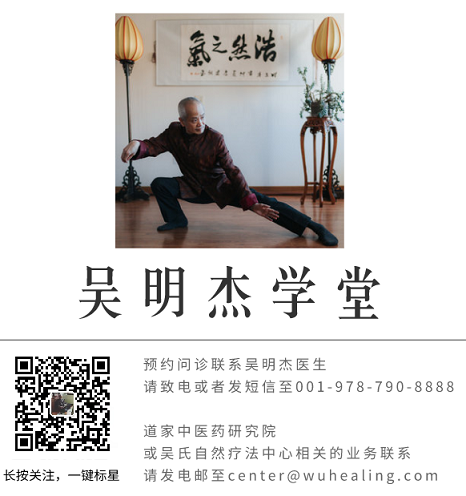Fengyang TCM Inheritor Dr. Liu Jiaqi Shared Fengyang TCM's Unique Techniques at the 11th Academic Annual Conference of the World Federation of Chinese Medicine Committee
From Surgical Knife to Herbal Medicine: My Journey in Integrative Oncology - Clinical Cancer Recovery Cases Inspired by Fengyang Traditional Chinese Medicine
Hello, I’m Dr. Liu Jiaqi, a Chief Physician of Surgery at Beihai People’s Hospital. At the recent World Federation of Chinese Medicine Societies conference on integrative TCM oncology, my presentation on "Fengyang TCM Clinical Practice for Cancer Treatment" sparked significant interest among peers. As a surgeon who has spent decades wielding scalpels, you might wonder: why delve into TCM for cancer care?
This article shares my cross-disciplinary journey, explains core Fengyang herbal formulas, and presents real-world liver cancer recovery cases. Even without prior TCM knowledge, you’ll grasp how Eastern and Western medicine collaborate to combat cancer.
I. From Scalpel to Herbal Formulas: My Cross-Disciplinary Starting Point
For over 20 years as a surgeon, I’ve saved lives with operations but also witnessed heartbreaking outcomes: liver cancer patients recurring within months post-surgery or elderly patients unable to tolerate chemotherapy. That changed when I met Dr. Wu Mingjie, a Fengyang TCM lineage holder. He challenged me: "Treating tumors isn’t just about cutting them out—it’s about restoring the body’s internal environment that allows cancer to thrive."
Fengyang TCM emphasizes "disease differentiation combined with syndrome differentiation"—especially for cancer, focusing on qi-blood regulation and organ balance instead of aggressive tumor-killing. This philosophy resonated: surgery removes visible threats, while TCM strengthens the body’s innate defenses. Together, our Fengyang team has treated over 100 liver cancer patients using this integrative approach. Below are two representative cases, followed by an analysis of Fengyang’s core herbal formulas.
II. Case Studies: How Integrative Therapy "Reversed" Liver Cancer
Case 1: 55-Year-Old Male with Post-Surgical Recurrence—4-Year Remission with Herbal Therapy
Patient Profile: A 55-year-old male (high-risk age group for liver cancer) presented in October 2022 with severe ascites, abdominal pain, fatigue, and malnutrition after radiation, interventional therapy, and lenvatinib plus immunotherapy for hepatocellular carcinoma (HCC).
TCM Diagnosis:
Symptoms: Fatigue, distension, bitter taste, constipation, red tongue with yellow-greasy coating.
Pattern: Liver Qi stagnation, Spleen deficiency, Damp-heat accumulation(surgery weakened qi, leading to qi stagnation and damp-heat breeding).
Treatment Protocol:
Interventional Therapy: Targeted embolization of two small lesions to reduce blood supply.
Herbal Formula: Modified Shu Gan Jian Pi Tang(Liver-Soothing Spleen-Strengthening Decoction):
Core Ingredients: Bupleurum (Chai Hu), Atractylodes (Bai Zhu), Poria (Fu Ling), Angelica (Dang Gui), Oldenlandia (Bai Hua She She Cao), Licorice (Gan Cao).
Adjustments: Added Scutellaria (Huang Qin) and Gardenia (Zhi Zi) for heat-clearing.
Outcome:
Jaundice and ascites resolved in 6 months.
AFP normalized, lesions disappeared entirely after 4 years.
Patient resumed travel and daily activities post-treatment.
Case 2: 72-Year-Old Female with Advanced Liver Cancer—1.5 Years of Stable Disease with Palliative Care
Patient Profile: A 72-year-old female diagnosed with 8cm HCC invading the portal vein in 2022. Refusing chemotherapy due to frailty, she presented with jaundice, ascites, insomnia, and dyspnea.
TCM Approach:
Focus: Symptom relief and life quality preservation ("treating the branch before the root").
Pattern: Qi stagnation, Blood stasis, Water retention.
Treatment Protocol:
Formula: Modified Huo Xue Li Shui Tang(Blood-Activating Diuretic Decoction):
Core Ingredients: Angelica (Dang Gui), Chuanxiong (Chuan Xiong), Poria (Fu Ling), Astragalus (Huang Qi), Scutellaria Barbata (Ban Zhi Lian).
Adjunct Therapies: Moxibustion at Zusanli (ST36) and Sanyinjiao (SP6).
Adjustments: Added Inula (Yin Chen) and Gardenia (Zhi Zi) for jaundice.
Outcome:
Jaundice and ascites improved within weeks.
Patient regained mobility, sleep, and appetite, achieving stable disease for 1.5 years.
III. Core Formulas of Fengyang TCM: Personalized, Not One-Size-Fits-All
Key Principle: TCM tailors formulas to individual constitution, symptoms, and disease stages. Below are two foundational formulas:
1. Shu Gan Jian Pi Tang (Liver-Soothing Spleen-Strengthening Decoction)
Indications: Early-stage HCC post-surgery (Qi stagnation, Spleen deficiency).
Formula:
Base Herbs: Bupleurum, Atractylodes, Poria, Angelica, Oldenlandia, Licorice.
Modifications:
Add Scutellaria/Gardenia for heat.
Boost Astragalus for severe fatigue.
Include Cassia seed (Jue Ming Zi) for constipation.
Mechanism: Balances liver qi, strengthens spleen function, and inhibits tumor recurrence via multi-target synergies.
2. Huo Xue Li Shui Tang (Blood-Activating Diuretic Decoction)
Indications: Advanced HCC with ascites, jaundice, and blood stasis.
Formula:
Base Herbs: Angelica, Chuanxiong, Poria, Alisma (Ze Xie), Astragalus, Scutellaria Barbata.
Modifications:
Add Artemisia (Yin Chen) and Gardenia for jaundice.
Incorporate Peach kernel (Tao Ren) and Safflower (Hong Hua) for severe pain.
Mechanism: Breaks blood stasis, resolves edema, and supports vitality through qi-tonifying herbs like Astragalus.
IV. Three Key Takeaways for Liver Cancer Patients
Avoid Extremes: Surgery is not the endgame; TCM is not a substitute. Use both strategically—surgery for early-stage control, TCM for long-term resilience.
Adhere to Professional Guidance: TCM formulas evolve with your condition. Skipping doses or self-adjusting risks efficacy.
Mindset Matters: Emotional well-being is therapeutic. Practices like tai chi, music, or social connection reduce stress and enhance treatment outcomes.
Closing Thoughts
As a surgeon turned integrative oncology advocate, I’ve learned: defeating cancer isn’t about eradicating every cell—it’s about restoring systemic harmony. Fengyang TCM’s legacy lies not in "miracle cures" but in its patient-centered philosophy: empower the body to heal itself.
If you or a loved one faces liver cancer, avoid unproven remedies. Consult a qualified integrative oncologist to craft a personalized plan. Trust in your body’s resilience—and in the power of synergy between East and West.
Wishing you vibrant health!
Dr. Liu Jiaqi
Beihai People’s Hospital
Let me know if you need further refinements





